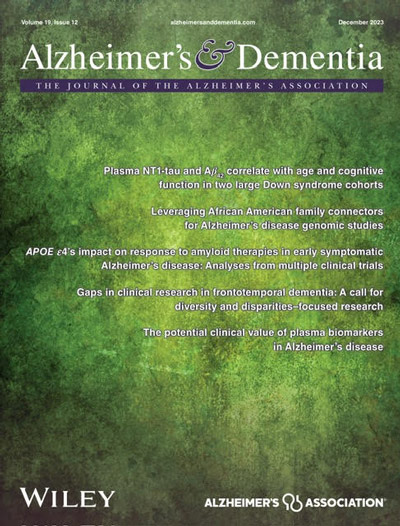Mediterranean vs. Western diet effects on the primate cerebral cortical pre-synaptic proteome: Relationships with the transcriptome and multi-system phenotypes
Abstract
INTRODUCTION
Diet quality mediates aging-related risks of cognitive decline, neurodegeneration, and Alzheimer's disease (AD) through poorly defined mechanisms.
METHODS
The effects of diet on the presynaptic proteome of the temporal cortex were assessed in 36 female cynomolgus macaques randomized to Mediterranean or Western diets for 31 months. Associations between the presynaptic proteome, determined by synaptometry by time-of-flight (SynTOF) mass spectrometry, adjacent cortex transcriptome, and multi-system phenotypes were assessed using a machine learning approach.
RESULTS
Six presynaptic proteins (DAT, Aβ42, calreticulin, LC3B, K48-Ubiquitin, SLC6A8) were elevated in the presynaptic proteome in Mediterranean diet consumers (p < 0.05). Transcriptomic data and multi-system phenotypes significantly predicted SynTOF markers. Selected SynTOF markers were correlated with changes in white matter volumes, hepatosteatosis, and behavioral and physiological measures of psychosocial stress.
DISCUSSION
These observations demonstrate that diet composition drives cortical presynaptic protein composition, that transcriptional profiles strongly predict the presynaptic proteomic profile, and that presynaptic proteins were closely associated with peripheral metabolism, stress responsivity, neuroanatomy, and socio-emotional behavior.
Highlights
- Mediterranean and Western diets differentially altered the cortical presynaptic proteome, which is strongly associated with neurodegeneration and cognitive decline.
- Presynaptic proteomic markers were predicted by transcriptomic profiles in the adjacent cortex, and by multi-system anatomical, physiologic, and behavioral phenotypes.
- The data demonstrate that brain phenotypes and brain-body interactions are influenced by common dietary patterns, suggesting that improving diet quality may be an effective means to maintain brain health.


 求助内容:
求助内容: 应助结果提醒方式:
应助结果提醒方式:


